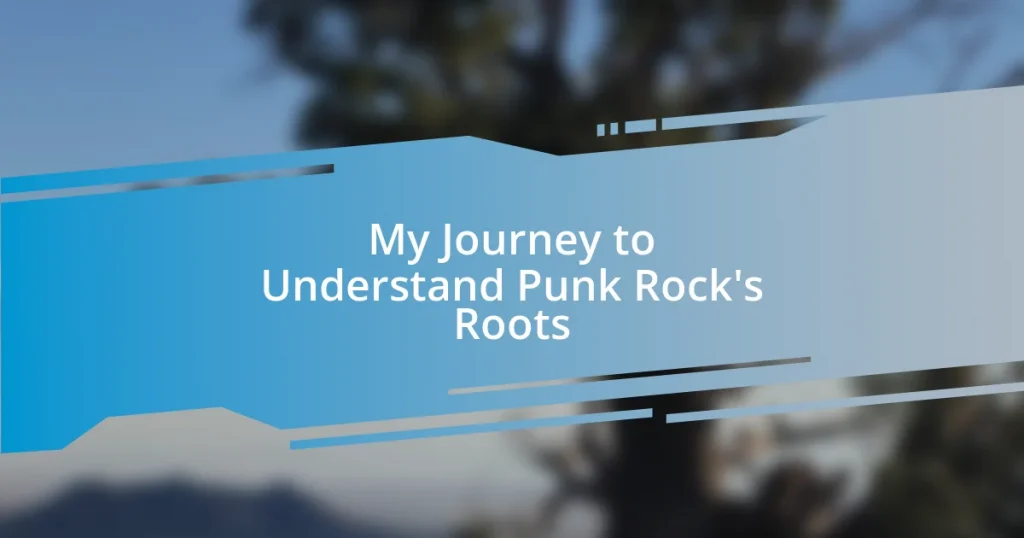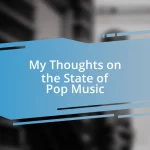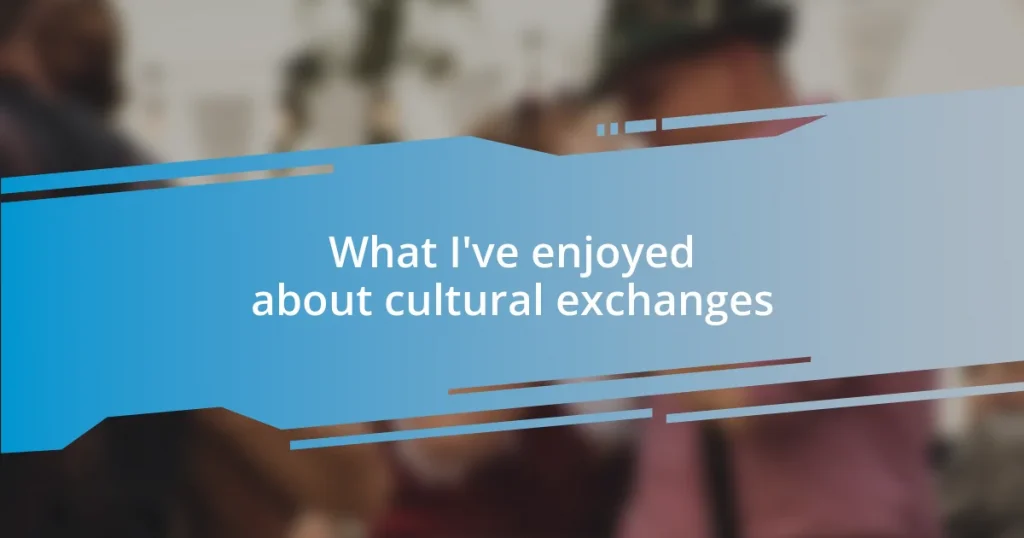Key takeaways:
- Music genres, particularly punk rock, profoundly influence cultural identity and express societal issues, serving as a call to action.
- Cultural movements, including the counterculture of the 1960s and feminist influences, shaped punk rock’s emergence, reflecting anger and unity amidst struggles.
- Punk rock subgenres such as hardcore and pop punk illustrate diverse expressions of personal and collective experiences, impacting listeners through relatable themes and energetic sounds.
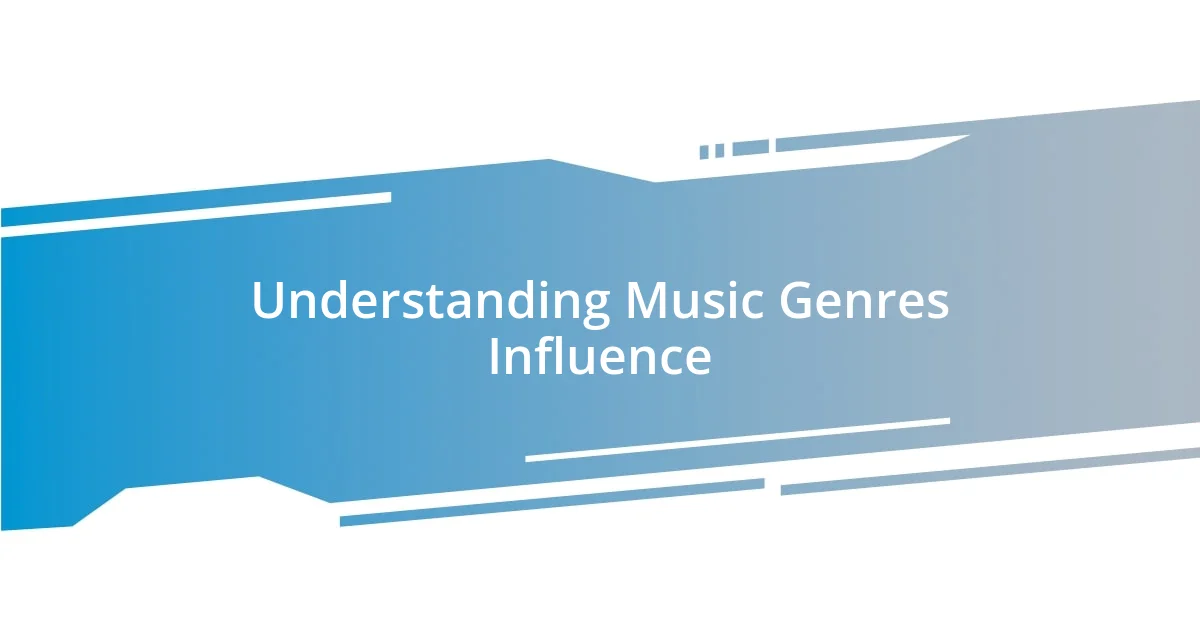
Understanding Music Genres Influence
Music genres are like the blueprint of cultural expression, shaping our identities in profound ways. I remember vividly the first time I heard a punk song; the raw energy grabbed me and made me question everything I thought I knew about music. Isn’t it fascinating how genres can provoke such strong emotions and reflections?
As I explored punk rock, I began to see its roots intertwined with rebellion and social critique. The influence of genres like rock, blues, and even reggae became clearer to me, all contributing to the rich tapestry that punk embodies. Have you ever thought about how these influences shape your own musical tastes? It’s incredible how each riff and lyric can connect to deeper societal issues, making the music not just entertainment but a call to action.
Diving deeper into music history, I found that genres are often responses to the world around them. For instance, punk emerged as a reaction to the socio-political climate of the 1970s, and that understanding helped me appreciate its urgency and relevance. Can you recall a song that made you feel like it spoke to your personal experience? In my case, certain punk anthems mirrored my own struggles, creating a bond that transcended mere sound.
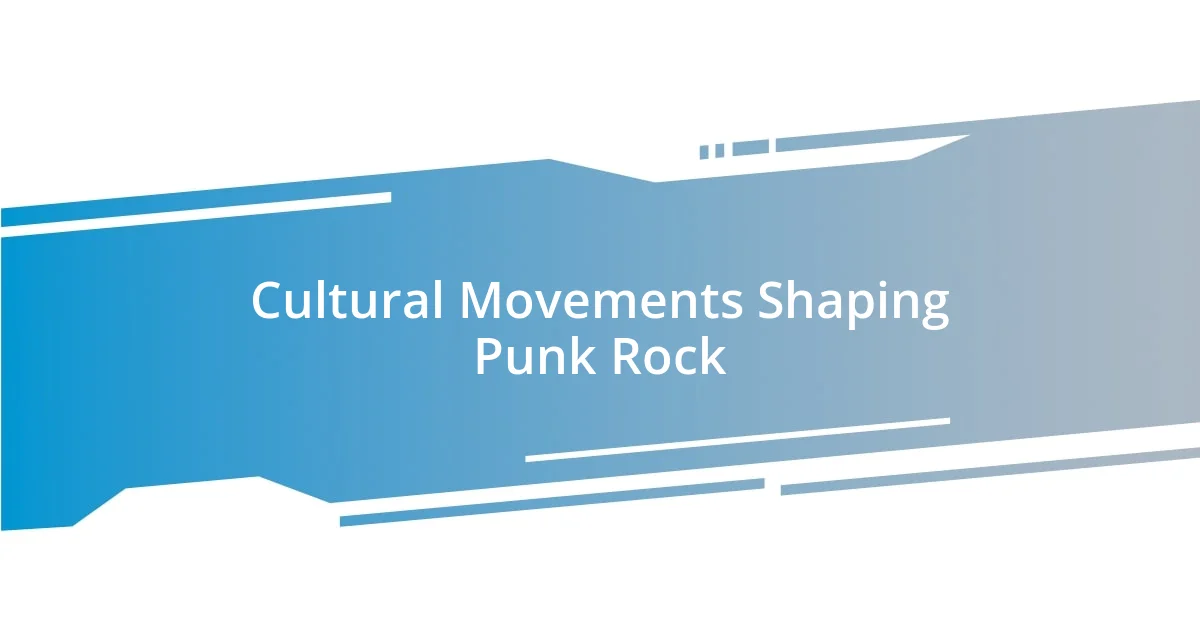
Cultural Movements Shaping Punk Rock
As I delved into the cultural movements surrounding punk rock, I found that various societal upheavals greatly influenced its emergence. The counterculture of the 1960s, marked by the fight for civil rights and anti-war sentiments, ignited a sense of rebellion that laid the groundwork for punk. Observing the gritty realities of life, punk artists melded their experiences with the collective cries of a disillusioned generation.
- The DIY ethic from movements like the Hippie counterculture encouraged independence in music production.
- The burgeoning feminist movements also contributed, with women like Patti Smith challenging norms.
- Economic hardships in working-class neighborhoods fueled anger and discontent, surfacing in the raw sound of punk.
- The rise of reggae and ska added an edge of multicultural influences, enriching the punk sound palette.
I often think back to how these cultural elements resonate with my own experiences of feeling like an outsider. The more I learned about the roots of punk, the more I saw parallels in my life. It was empowering to discover that this genre doesn’t just speak to rebellious youth—it captures universal sentiments of struggle, authenticity, and unity. Each song I listened to felt like a conversation with the past, connecting individual narratives to a larger movement.
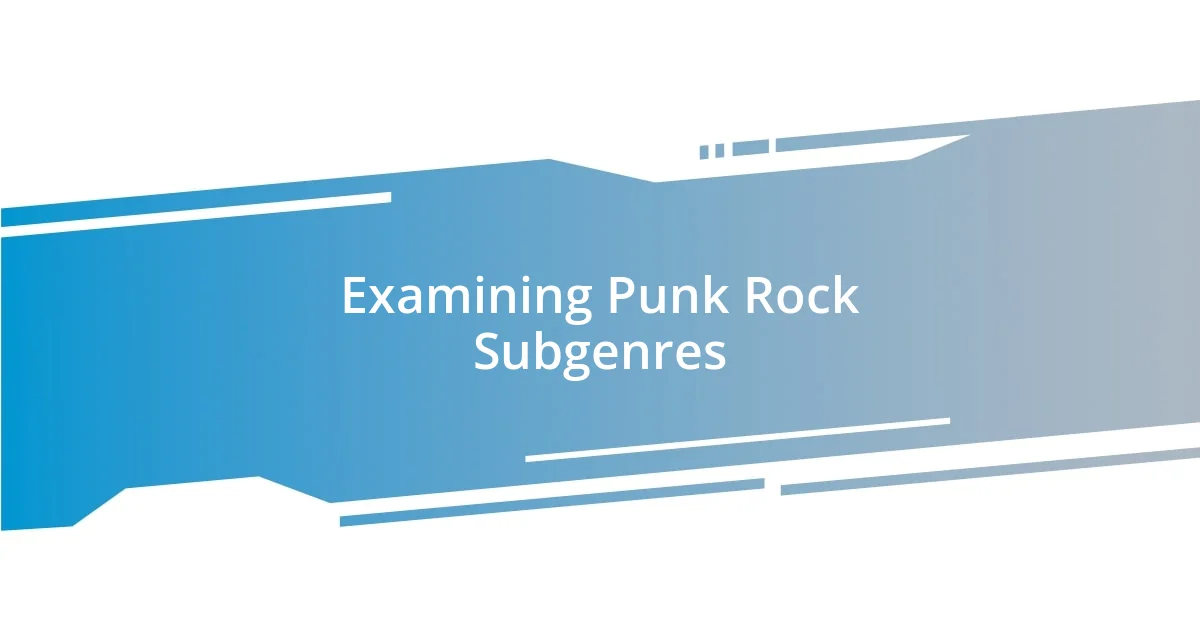
Examining Punk Rock Subgenres
Examining punk rock subgenres reveals a fascinating landscape where political voices meet artistic expression. Take, for example, hardcore punk—its relentless speed and aggressive vocals echo the frustration felt by many during the politically charged 1980s. I remember blasting Black Flag in my room, feeling my own anger transform into an anthem of defiance. It’s hard not to wonder: how much of our personal angst can we channel into music that resonates so deeply?
Then there’s pop punk, which took a different route. While the sound remains punk at its core, bands like Green Day and Blink-182 infused melody and humor, making punk relatable to a broader audience. Reflecting on my teenage years, I can’t help but smile at how songs like “Basket Case” were the soundtrack to my awkward high school days. Isn’t it wild how a catchy chorus can encapsulate feelings of isolation and confusion?
Additionally, I’ve noticed that subgenres like ska punk—characterized by its upbeat tempo and brass instruments—carry their own nuances and messages. The infusion of reggae beats with punk rock feels like a celebration amid chaos. I remember watching a local band perform and feeling an exhilaration as the horns kicked in, and I found myself dancing amidst strangers, each of us lost in our collective joy. How does music transform our connections to one another, bridging gaps we think are too wide?











